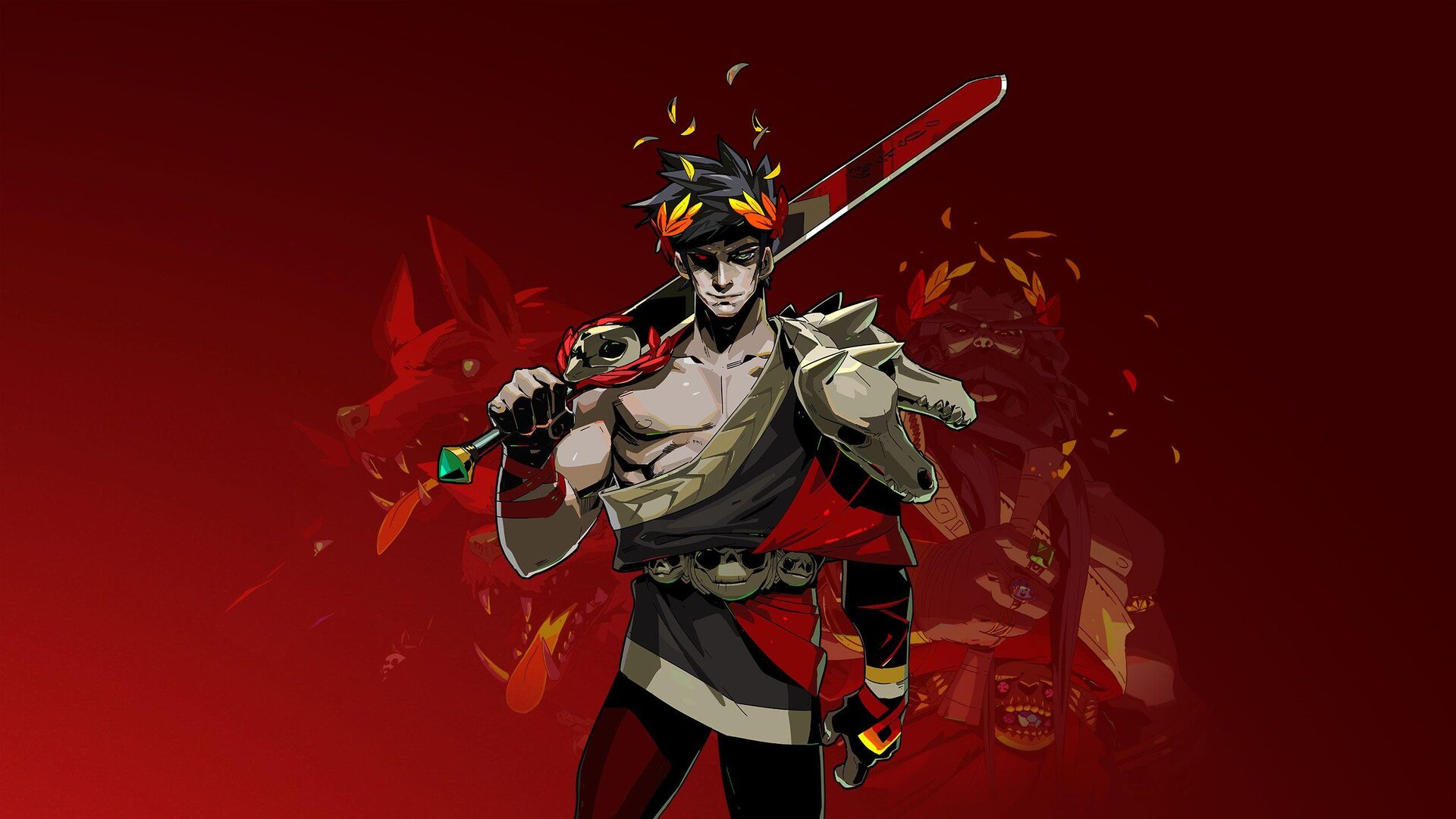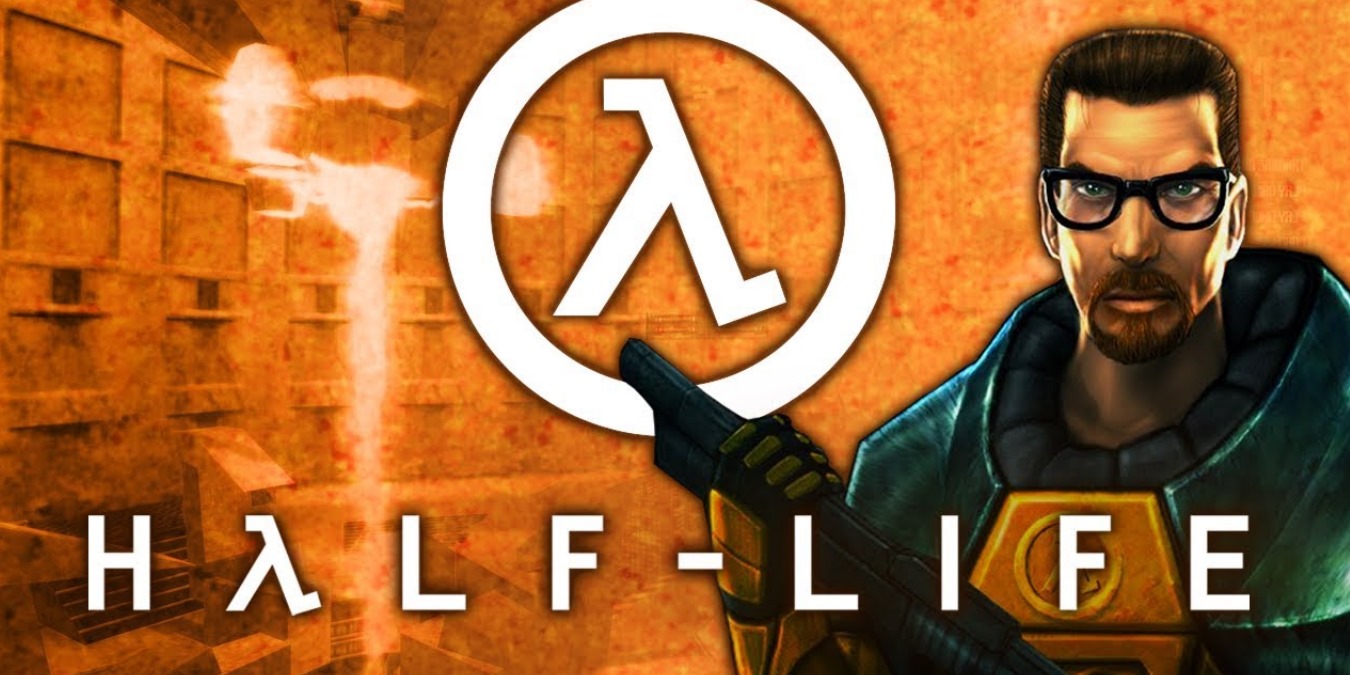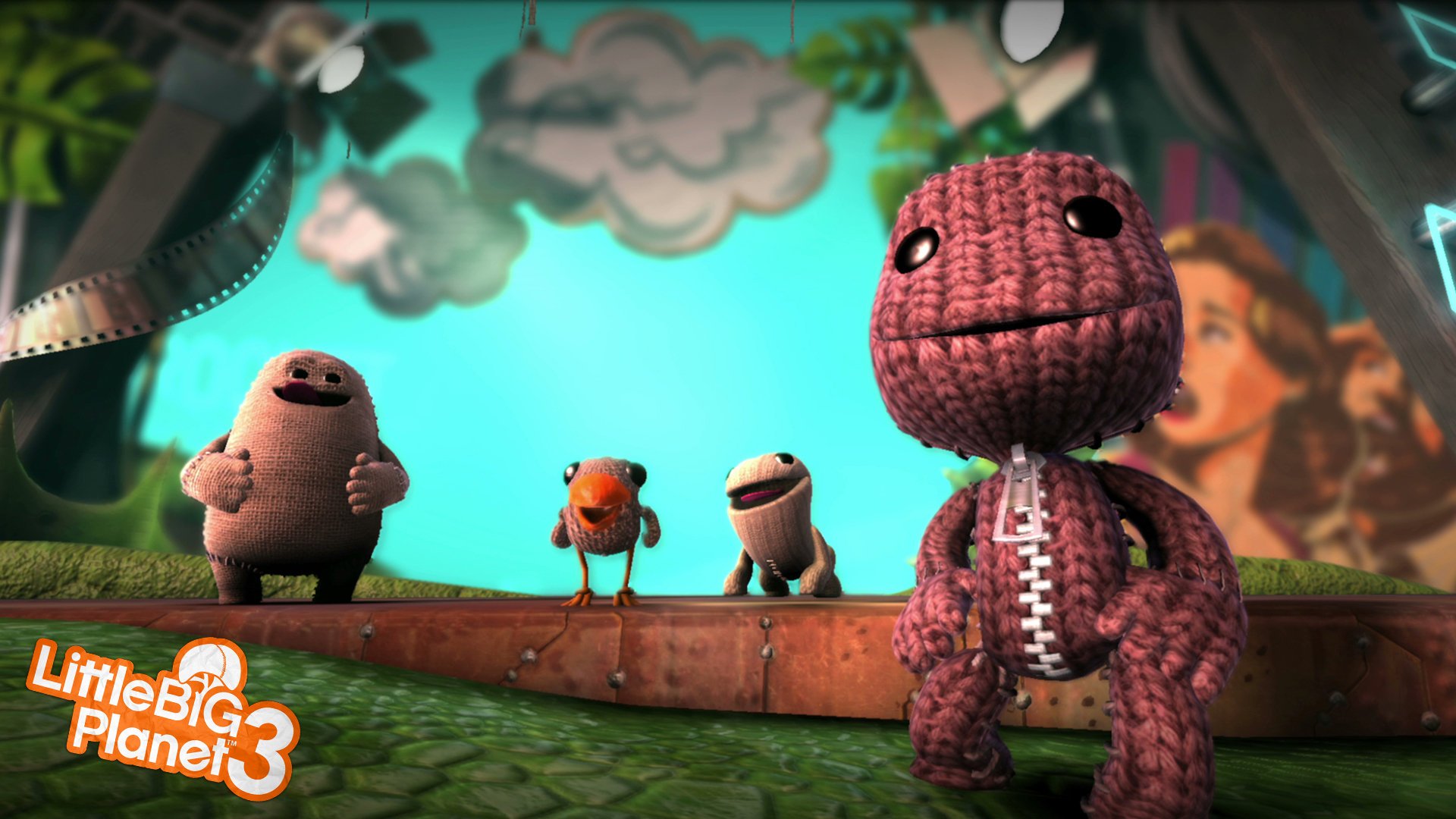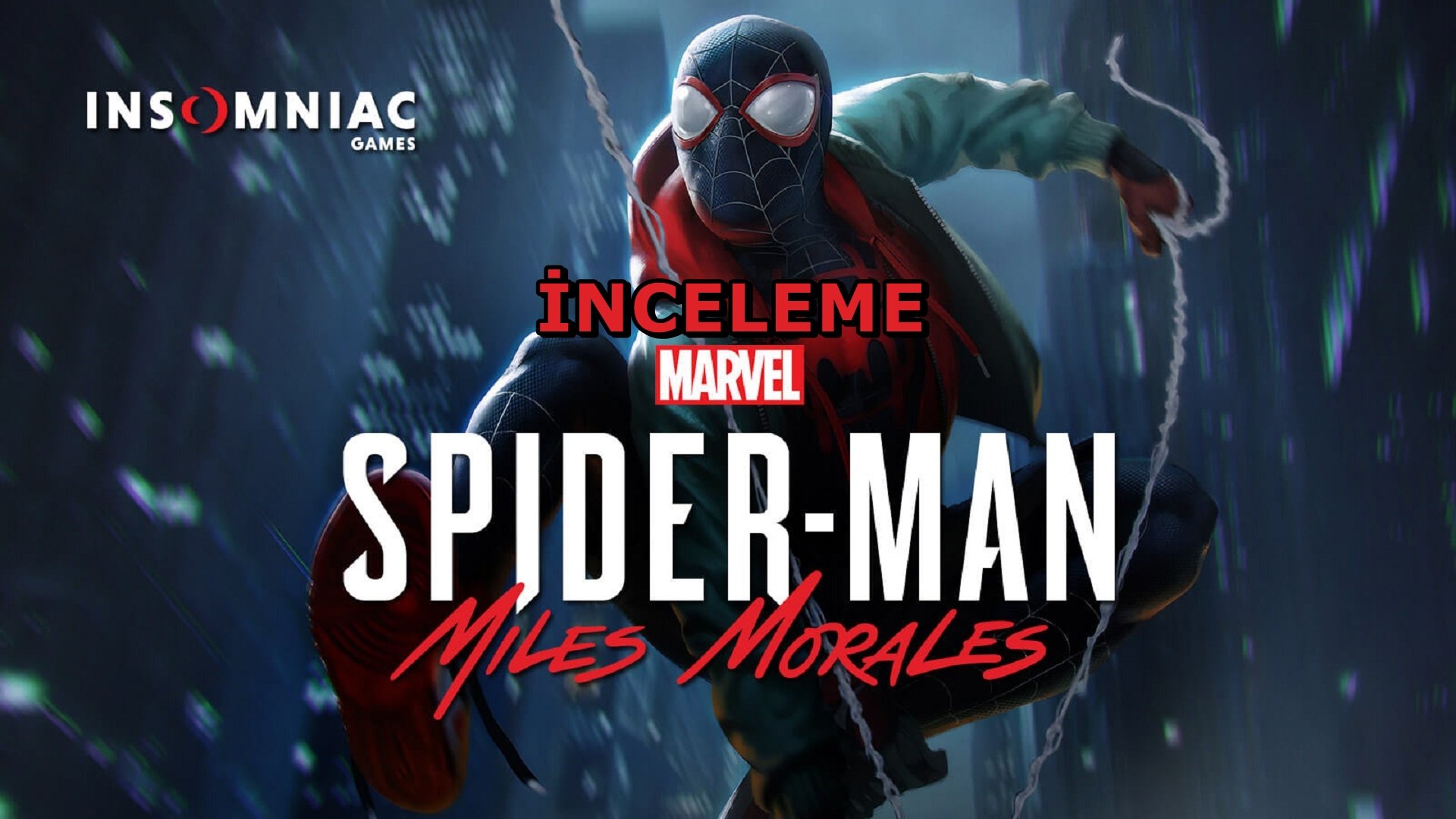The Walking Dead Universe Roleplaying, published by Free League recently, is based on AMC’s popular post-apocalyptic zombie TV series, as the name suggests. You and your friends try to survive in the zombie apocalypse, sometimes fighting with the walking dead and sometimes with other people trying to survive like you. If you love the TV series and like to come up with scenarios about what you would do if there was a zombie outbreak, this is a great opportunity to experience it.
Even if you haven’t watched the series, you will not feel any difficulty playing the game or feeling alienated from the world. The book explains the situation you are in and the world well enough. In short, due to an unknown outbreak, the dead have begun to rise and want to eat the flesh of the living in a very aggressive way; a classic zombie apocalypse.
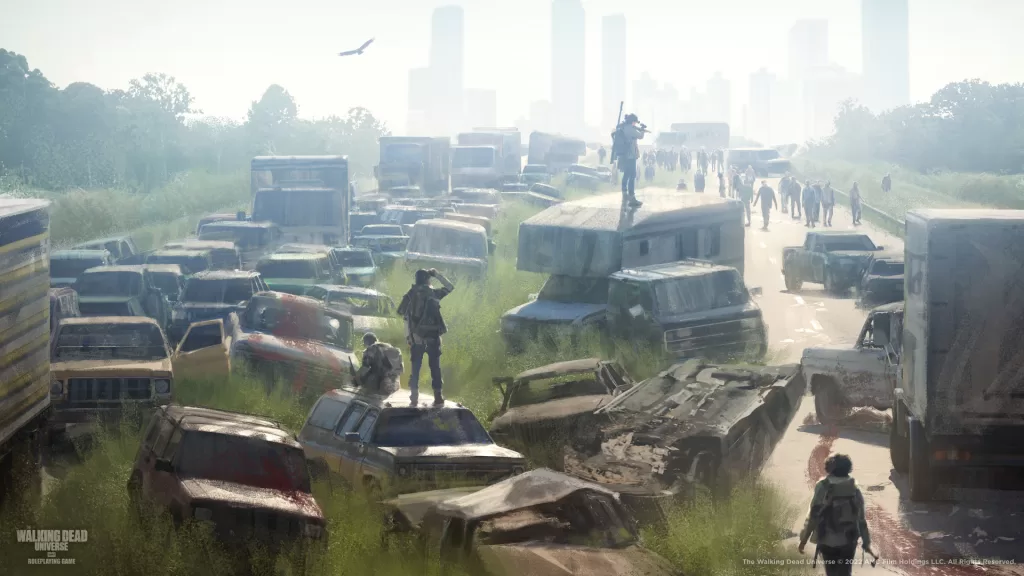
System
The Walking Dead RPG uses the Year Zero Engine, which is also used in other Free League games such as Tales From the Loop, Alien RPG, Blade Runner RPG, Mutant: Year Zero, and Forbidden Lands. However, as with all of Free League’s games, it has been adapted to fit the universe of The Walking Dead.
I personally love the Year Zero Engine, both as a GM and as a player. It is easy to learn and doesn’t require you to worry about complex calculations. Instead, you can focus on role-playing and atmosphere. As someone who has played DnD for a long time, I appreciate simpler systems like this. They help me to remove the mechanical fatigue and focus on the atmosphere. I think it was a very good decision to use the Year Zero Engine for The Walking Dead.
To summarize the system briefly, you have four basic attribute scores and twelve skills associated with them. At the beginning of the game, you have 13 points that you can distribute among your attributes. However, you can only give a maximum of 4 and a minimum of 2. Additionally, you can give a maximum of 5 to your key attribute, which is determined by the archetype you choose at the beginning of the game.
Similarly, you will have 12 points to determine your skills. You can give 3 points to a skill that is determined by your archetype if you wish. Otherwise, you can give a maximum of 2 points to any skill.
These scores represent how many six-sided dice you will roll during your actions. For example, let’s say you gave 4 to your strength attribute and 1 to your Force skill, which is located under it. If you want to break down a door by force, you will roll 5 six-sided dice and your action will be successful if any one of them comes up as 6.
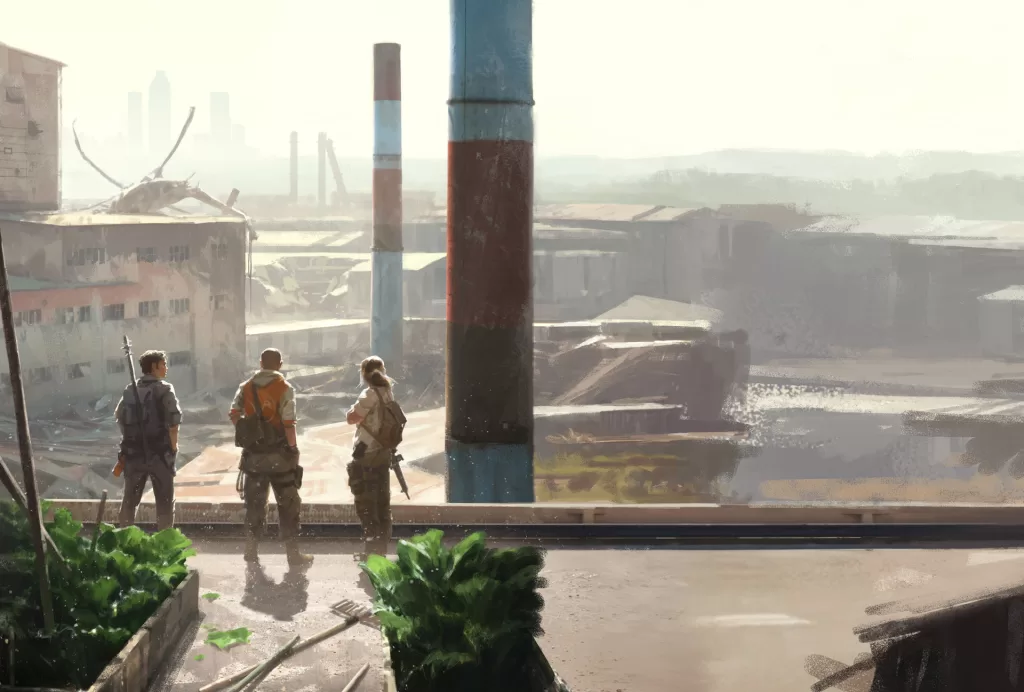
The system is entirely based on a mechanic where you roll six-sided dice and your action is successful if any one of them comes up as 6. It may seem quite easy at first, but it can be quite challenging if you don’t have enough points in the necessary skill.
Archetypes
The Walking Dead RPG book contains 12 different archetypes. These archetypes are templates that define the basic attributes and abilities of your character. Archetypes make it easier to create your character and give you a starting point.
The archetypes in the book are as follows:
- Criminal
- Doctor
- Farmer
- Homemaker
- Kid
- Law Enforcer
- Nobody
- Outcast
- Politician
- Preacher
- Scientist
- Soldier
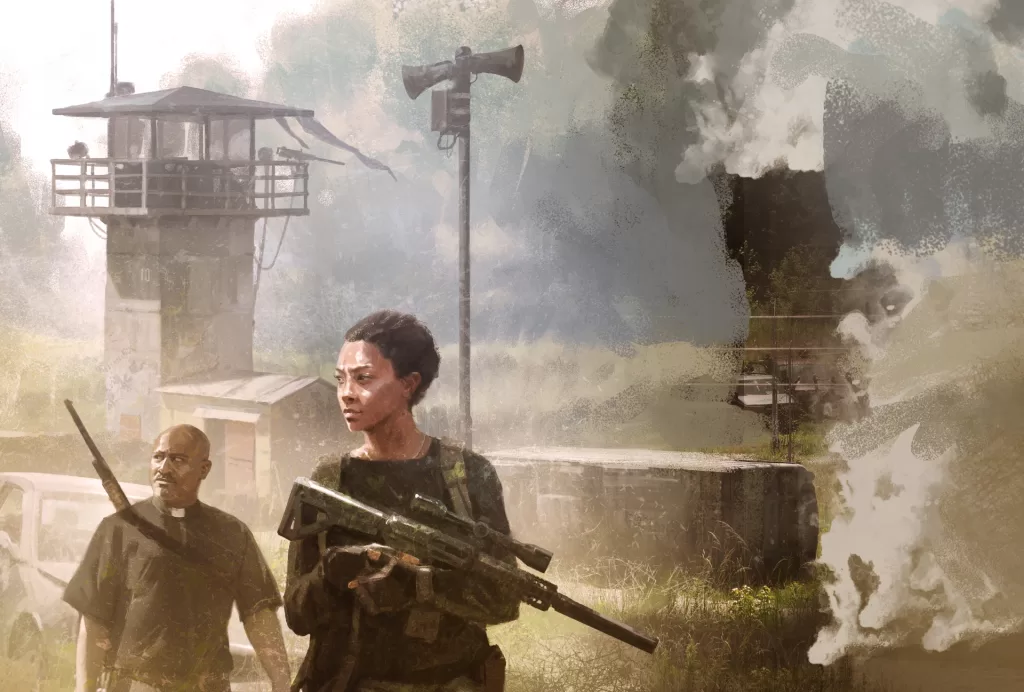
These archetypes cover a wide range. This means that you can create the type of character you want. In addition to the archetypes found in the book, you can also create your own archetype. This allows you to create a more unique and original character.
There are also NPC creation tables that you can use in the game. These tables help you to quickly create a random NPC. By using the tables, you can create NPCs with different personalities, abilities, and backgrounds. This allows you to make your game world more rich and diverse.
Detailed Sandbox Experience
The book is designed in a sandbox style to give the game master a wide range of freedom. It contains dozens of tables that you can use to create a campaign that could last forever (or at least 11 seasons).
It is important to note that the book is sandbox because this game is a bit different from Free League’s other books. It is not as detailed as Alien or Blade Runner, but instead, they offer you a very wide playing field. You can fill this playing field to your liking and embark on enjoyable adventures that will last for dozens of hours. In general, the book does not detail many things, but this is a design choice that has been made for the game to be a sandbox.
The Walking Dead Universe RPG has a unique mechanic called Threat Level. It rates how much danger you are in from 0 to 6, depending on your situation. Zero is for situations where there is no threat, while one and two are for situations where there are zombies around but they have not noticed you. After three, the zombies notice you and start chasing you. It is probably too late to escape if the threat level reaches six. You can feel the zombies’ breath and saliva on your neck.
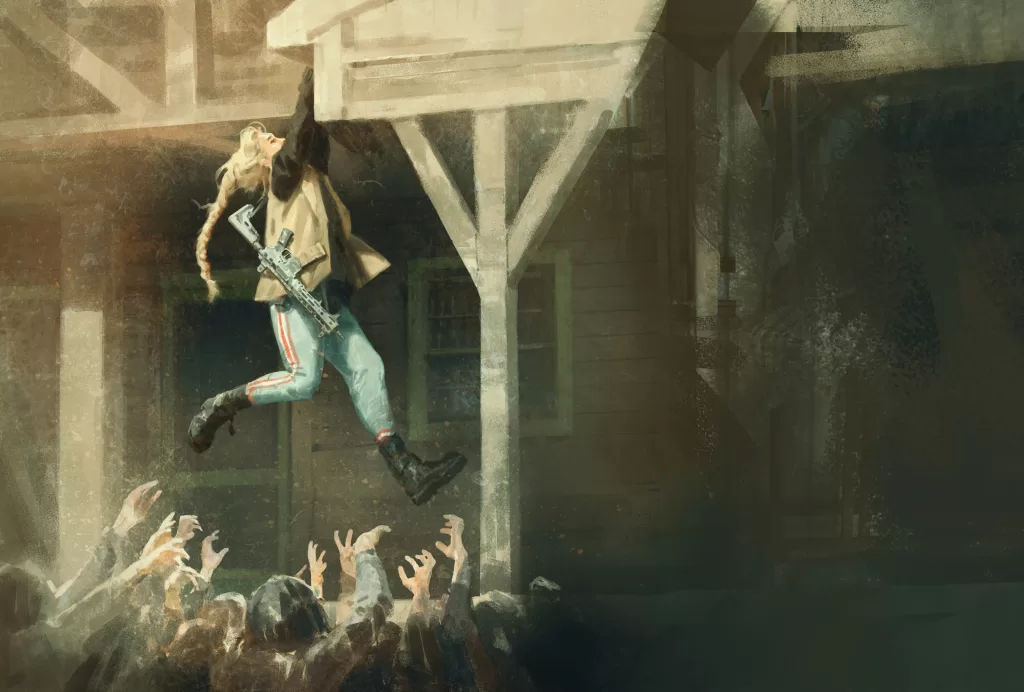
Adding such a threat level to the game and having the game master share the threat level of the sequence they are in with the players at any time has created a very pleasant sense of tension at the table.
Fighting Zombie Swarms
The book does not have a detailed section on zombie types, but this is intentional. Instead, zombies are classified as Swarms. The danger they pose increases with the size of the Swarm, and this increases the difficulty level of fighting them.
Of course, you are not doing individual calculations for a 100-person zombie team when fighting Swarms. Instead, you experience a hack-and-slash battle sequence with them. The difficulty level depends on the size of the swarm and the total danger level determined by the atmosphere at that time. While normally one six-sided die is enough for your actions, you need to pass this total difficulty, that is, you need to roll as many successful dice as the difficulty level when fighting these types of swarms.
On the bright side, if three people are fighting, each person also rolls dice according to their actions, and the total is taken to determine whether you pass the difficulty. If you are fighting alone, you still roll three times, but you reduce the number of dice you will roll by 2 in your second roll and by 4 in your third roll.
I would expect them to add more mechanics specific to the universe, such as the Chases mechanic they added to the Blade Runner RPG, but I can say that it is in a very good condition as it is.
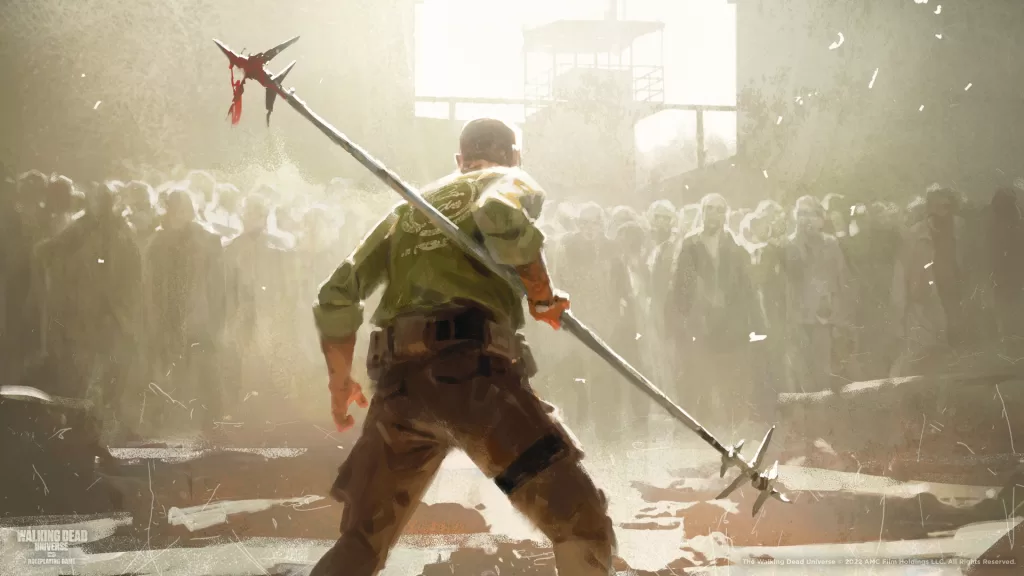
Establishing Safe Zones
The book also proves to be quite helpful in creating your own safe haven, referred to in the book as ‘Paradise.’ It allows you to determine various aspects, from how it is defended to addressing issues within, including the provisions stored in the depot. Allowing players to create their own zones rather than relying on standard safe areas is a great feature from the player’s perspective, providing an opportunity for a sandbox-like experience.
Additionally, the book assists the game master by providing plenty of tips and in-game examples, aiding in better preparation for the game. As a game master, I personally appreciate Free League’s inclusion of in-game examples in every book because the examples I read are quite beneficial in shaping the theme I need to create at the table.
Example from Our Adventure
Before concluding with the final words, let me explain the sandbox nature of one of the games we played by narrating our experience, highlighting how versatile and enabling it truly was.
In a game that four of us played as a team, we decided to embark on an adventure set in our own world, where each person portrayed their real-life character. The game started with our characters taking a one-week vacation away from the city for a technology detox, and upon returning to the city at the end of their holidays, they encountered a zombie outbreak. Our team, being away from the city and any source of news for 1-2 weeks, faced this outbreak upon their return.
At this point, they set out on a perilous journey to reach a safe zone, based on information they heard from the car radio. As the game took place in our city, we utilized Google Maps as our map. Additionally, by placing numerous points that were familiar to all of us, we made our adventure even more memorable. If you wish, you can also play out a zombie outbreak in your own neighborhood or embark on an adventure in one of the regions featured in a TV series, similarly to our approach.
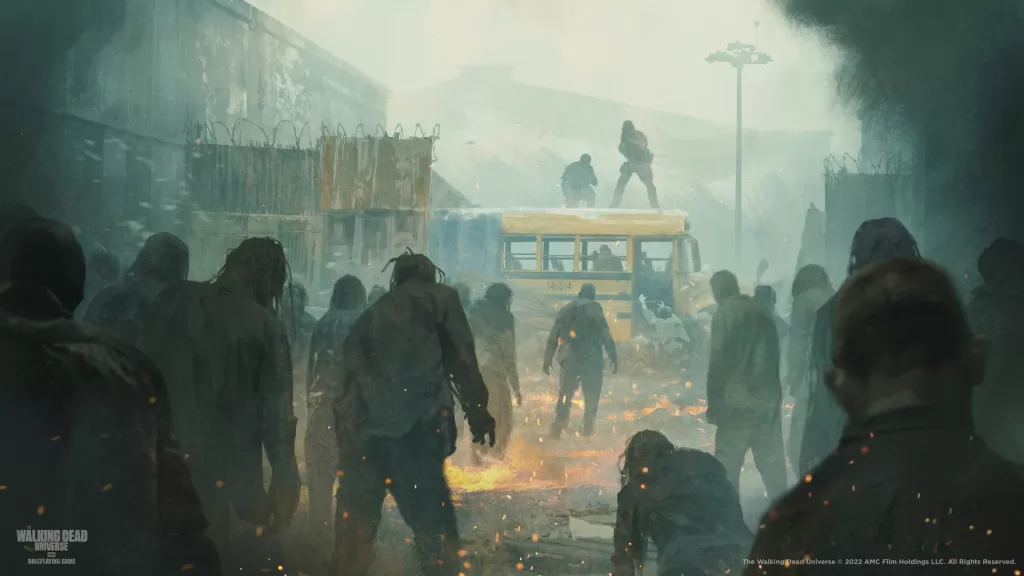
Final Words
The Walking Dead Universe Roleplaying has proven to be a game that you won’t easily find a better alternative for players who enjoy the post-apocalyptic zombie survival theme. Thanks to its sandbox design, it is suitable for organizing long sessions, and it’s also a great choice for those who prefer shorter games. Additionally, it’s worth mentioning that the book includes a solo mode for those who want to play alone.
I believe the content of the Core Rulebook and Starter Set on DriveThruRPG is quite reasonable, and it’s worth the investment. While the Core Rulebook is priced at $25, the Starter Set is $10—quite a reasonable cost for such an extensive sandbox.
I hope Free League continues to support this game, bringing more ready adventures or books like Building Better Worlds, an expansion pack for Alien that we will be reviewing on our site soon. It would be great to see them expand the universe further.

